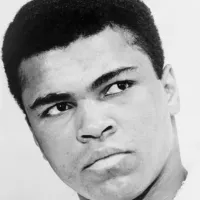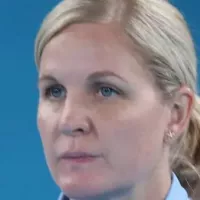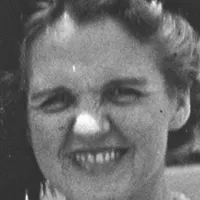South Sudan, officially the Republic of South Sudan, is a landlocked country in East Africa bordered by Sudan, Ethiopia, the Democratic Republic of the Congo, Uganda, Kenya, and the Central African Republic. Its diverse landscape features plains, plateaus, savannahs, floodplains, and forested mountains. The Nile River system and the Sudd swamp are defining physical features. As of 2024, South Sudan has a population of over 12.7 million, and its capital and largest city is Juba.
1922: Closed District Ordinance
In 1922, British policies favoring Christian missionaries, such as the Closed District Ordinance, curtailed the spread of Islam to the south.
1930: Southern Policy announcement
In 1930, Britain legalized the treatment of South Sudan as a distinct entity with a different stage of development than the North by announcing the Southern Policy.
1946: Reversal of Southern Policy
In 1946, the British administration reversed its Southern Policy without consulting Southern opinion and began instead to implement a policy of uniting the North and the South.
1955: First Sudanese Civil War start
From 1955 to 1972, the Sudanese government fought the Anyanya rebel army during the First Sudanese Civil War.
1955: Fungi List Published
In 1955, S. A. J. Tarr prepared a list of fungi in Sudan, published by the Commonwealth Mycological Institute (Kew, Surrey, UK). The list contained 383 species in 175 genera, observed within the then boundaries of the country, including what is now South Sudan. Most recorded species were associated with crop diseases.
1956: Sudanese independence
In 1956, Sudan gained independence after being governed as an Anglo-Egyptian condominium since it was occupied by Egypt under the Muhammad Ali dynasty.
1956: Last official census
In 1956, the last official census to take into account religion was conducted, classifying a majority of people as adherents of traditional beliefs or Christianity, while 18% were Muslim.
1956: Long-term Negative Impact of War
Since 1956, the region that is now South Sudan has been negatively impacted by war for all but 10 years, resulting in serious neglect, lack of infrastructure development, major destruction, and displacement.
1958: First independent elections in Sudan
After Sudan's first independent elections in 1958, the continued neglect of the southern region by the Khartoum government led to uprisings and civil war.
1972: English as principal language
Since 1972, English had been the principal language of what is now South Sudan, serving as the common medium for administrative purposes.
1972: First Sudanese Civil War end
The Sudanese government fought the Anyanya rebel army during the First Sudanese Civil War from 1955 to 1972.
1990: Previous educational system
Before the current educational system, the regional Southern Sudan's system—which was modelled after the system used in the Republic of Sudan since 1990.
1995: Catholic Church largest Christian body
Since 1995, the Catholic Church was the largest single Christian body in Sudan, with the country's 2.7 million Catholics being concentrated in what is today South Sudan.
2001: World Christian Encyclopedia claim
In 2001, the World Christian Encyclopedia claimed that the Catholic Church was the largest single Christian body in Sudan since 1995.
2004: Healthcare Crisis in Southern Sudan
In 2004, Southern Sudan faced a severe healthcare crisis, with only three surgeons serving the region, three proper hospitals, and a doctor-to-population ratio as low as one doctor for every 500,000 people in some areas.
July 2005: John Garang's Death
John Garang, a founder of the SPLA/M and president of the autonomous government, died on July 30, 2005.
August 2005: Salva Kiir Sworn In
On August 11, 2005, Salva Kiir Mayardit was sworn in as First Vice President of Sudan and President of the Government of Southern Sudan, succeeding John Garang. Riek Machar became Vice-President of the Government.
2005: Economy transition
Around 2005, the economy of South Sudan began a transition from rural dominance, and urban areas within South Sudan have seen extensive development.
2005: John Garang's Capital Relocation Plans
Before his death in 2005, John Garang allegedly had plans to relocate the capital to Ramciel, influencing the later proposal to build the new capital there.
2005: Arabic recognized as second official language
In 2005, Arabic was recognized as South Sudan's second official language, alongside English, in its interim constitution.
2005: Comprehensive Peace Agreement and Humanitarian Needs
In 2005, at the time of the Comprehensive Peace Agreement, Southern Sudan faced massive humanitarian needs, which humanitarian organizations addressed through funding and relief efforts.
2005: Abyei Area Given Special Status
In 2005, the Abyei Area was given special administrative status as a result of the Comprehensive Peace Agreement.
2005: Wildlife Surveys Begin
In 2005, the Wildlife Conservation Society (WCS), in partnership with the semi-autonomous government of Southern Sudan, began surveys that revealed significant wildlife populations still existed. The surveys also noted that the migration of 1.3 million antelopes in the southeast remained substantially intact.
2005: Interim Constitution Superseded
In July 2011, the transitional constitution ratified before independence superseded the Interim Constitution of 2005.
2006: Government Promises Environmental Protection
In 2006, President Kiir announced his government would protect South Sudanese fauna and flora and reduce the effects of wildfires, waste dumping, and water pollution.
2007: English adopted as official language
In 2007, South Sudan adopted English as the official language of communication.
2007: Defence Paper Initiated
In 2007, a Defence paper was initiated by then Minister for SPLA Affairs Dominic Dim Deng.
2007: Humanitarian Projects Included in UN Work Plan
In 2007, humanitarian projects were included in the Work Plan of the United Nations and partners, along with recovery and development aid, to address the needs of the population in South Sudan.
2007: UN OCHA Decreased Involvement
In 2007, the United Nations OCHA, under the leadership of Éliane Duthoit, decreased its involvement in Southern Sudan. Control was slowly turned over to the recovery and development activities of NGOs and community-based organisations as humanitarian needs diminished.
April 2008: Fifth Population and Housing Census of Sudan
In April 2008, the "Fifth Population and Housing Census of Sudan" counted the Southern Sudan population at 8.26 million. Southern Sudanese officials rejected the census results of Southern Sudan.
2008: Defence Paper Draft Produced
In 2008, a draft of the Defence paper was produced, declaring that Southern Sudan would eventually maintain land, air, and riverine forces.
2009: Debt Report by Bank of Sudan
According to a 2009 report provided by the Bank of Sudan, a small portion of South Sudan's external debt (approximately US$5.3 billion) was owed to international institutions like the World Bank and the International Monetary Fund.
2009: Southern Sudanese census initiated
In 2009, Sudan initiated a Southern Sudanese census ahead of the 2011 independence referendum, which would also include the South Sudanese diaspora.
2010: CIA Warning of Mass Killing or Genocide
In 2010, the CIA issued a warning that "over the next five years ... a new mass killing or genocide is most likely to occur in southern Sudan."
January 2011: South Sudanese independence referendum
Between 9 and 15 January 2011, the South Sudanese independence referendum was held, with 98.83% voting for separation. On 23 January 2011, it was announced the new nation would be called the Republic of South Sudan.
January 2011: Dual Citizenship Announcement
In January 2011, Sudan's President Omar al-Bashir announced that dual citizenship in the North and the South would be allowed, but retracted the offer upon the independence of South Sudan.
February 2011: Resolution to Study New Capital Creation
In February 2011, due to Juba's poor infrastructure and lack of centrality, the South Sudanese Government adopted a resolution to study the creation of a new planned city to serve as the seat of government, with plans to move the capital to Ramciel.
May 2011: SPLA Allegedly Set Fire to Homes
In May 2011, the SPLA allegedly set fire to over 7,000 homes in Unity State.
May 2011: Sudanese Military Seizes Abyei
In May 2011, the Sudanese military seized Abyei. It was uncertain if the referendum to join South Sudan or remain part of the Republic of Sudan would be held.
June 2011: South Kordofan conflict
In June 2011, the South Kordofan conflict broke out between the Army of Sudan and the SPLA over the Nuba Mountains.
July 2011: South Sudan becomes an independent nation
In July 2011, South Sudan became an independent nation, but negotiators failed to agree on how to split revenue from southern oilfields.
July 2011: Transitional Constitution Ratified
In July 2011, the Southern Sudan Legislative Assembly ratified a transitional constitution shortly before independence. The constitution was signed by President Salva Kiir Mayardit on Independence Day, making it the supreme law, superseding the Interim Constitution of 2005.
July 2011: South Sudan Plays First Football Match
On 10 July 2011, the South Sudan national football team played its first match against Tusker FC of the Kenyan Premier League in Juba as part of independence celebrations.
September 2011: Google Maps recognition
In September 2011, Google Maps recognized South Sudan as an independent country after a crowdsourcing mapping initiative.
September 2011: Concerns over EAC Membership
In September 2011, a South Sudanese MP expressed concerns that South Sudan's economy was not sufficiently developed to compete with EAC member states and could become a "dumping ground" for exports, potentially delaying membership, but this was contradicted by President Salva Kiir.
September 2011: New Capital Proposal Accepted
In September 2011, the government's spokesman said political leaders accepted a proposal to build a new capital at Ramciel, in Lakes state, considered the geographical center of the country. The design, planning, and construction of the city was expected to take as many as five years, with the move of national institutions implemented in stages.
November 2011: Arrest of Destiny Editor
In November 2011, South Sudan's National Security Services (NSS) arrested the editor of Destiny, a private Juba-based daily, and suspended its activities indefinitely due to an opinion article criticizing the president.
November 2011: Peter Abdul Rahaman Sule Arrested
Peter Abdul Rahaman Sule, the leader of the key opposition group United Democratic Forum, has been under arrest since 3 November 2011 over allegations linking him to the formation of a new rebel group fighting against the government.
December 2011: Cattle Raids and Border Clashes
In December 2011, Pibor County in Jonglei State experienced cattle raids that led to border clashes, which ultimately resulted in widespread ethnic violence.
December 2011: US Sanctions Removed, Engagement Conference Held
In December 2011, the U.S. government officially removed its sanctions against Sudan from applicability to newly independent South Sudan. Senior RSS officials participated in an international engagement conference in Washington, D.C., to connect foreign investors with the RSS and South Sudanese private sector representatives.
December 2011: Tribal clashes intensify
In December 2011, tribal clashes intensified between the Nuer White Army and the Murle.
2011: Underdeveloped economy and infrastructure
In 2011, South Sudan's economy was one of the world's most underdeveloped, characterized by limited infrastructure and the highest maternal mortality and female illiteracy rates globally. The country relies heavily on agriculture and exports timber.
2011: Freedom of Religion
In 2011, South Sudanese President Salva Kiir stated that South Sudan would be a nation that respects freedom of religion.
2011: Census ahead of independence referendum
In 2011, Sudan conducted a Southern Sudanese census ahead of the independence referendum, including the South Sudanese diaspora.
2011: War with armed groups
In 2011, it was reported that South Sudan was at war with at least seven armed groups in 9 of its 10 states.
2011: No Legal Status for Arabic
In 2011, with the adoption of the current transitional constitution, Arabic lost its legal status in South Sudan.
2011: Famine Reports in Bentiu and Latjor States
In mid-2011, reports indicated that famine led to deaths in Bentiu and Latjor states, although the state governments denied that the hunger was severe enough to cause fatalities.
2011: Continuation of Oil Revenue Sharing
Until 2011, the agreement from 2005 was maintained, meaning the government of Sudan in Khartoum continued to receive a 50% share of all oil revenues from South Sudan.
January 2012: Suspension of Oil Production
In January 2012, South Sudan suspended oil production due to objections to Sudan charging US$34 per barrel to transport oil through the pipeline to Port Sudan, resulting in a significant reduction in revenue and a 120% increase in food costs.
January 2012: Ethnic Violence and Displacement in Jonglei State
In January 2012, the ethnic violence that began in December 2011 in Pibor County, Jonglei State, escalated, leading to thousands of deaths, the displacement of tens of thousands of South Sudanese, and the disappearance of hundreds of Médecins Sans Frontières staff. The government declared the area a disaster zone.
March 2012: Seizure of Heglig oil fields
In March 2012, South Sudanese forces seized the Heglig oil fields in lands claimed by both Sudan and South Sudan after conflict with Sudanese forces.
April 2012: Plans to launch a South Sudanese national airline
On 4 April 2012, plans were unveiled to launch a South Sudanese national airline, initially for domestic service with eventual expansion to international routes.
2012: Presbyterian Church Members
In 2012, the Presbyterian Church had one million members in South Sudan.
2012: Guor Marial Competes in Summer Olympics
In the 2012 Summer Olympics, Guor Marial competed as an athlete from South Sudan under the banner of Independent Olympic Athletes due to South Sudan not yet having an official Olympics organization.
February 2013: UNHCR Distributes Relief Items in Malakal
In early February 2013, UNHCR began distributing relief items outside the UN base in Malakal, South Sudan, with the expectation to reach 10,000 people.
September 2013: Article on autocracy in SPLM
On the 5th of September 2013, an article written by analyst Duop Chak Wuol was published by the US-based South Sudan News Agency (SSNA). The writer raised critical questions surrounding what he described as the rise of autocracy within the top leadership of the Sudan People's Liberation Movement (SPLM) and warned of monumental repercussions unless the ruling elites restored the founding principles of the party.
December 2013: War Erupts and People Flee Homes
As a result of the war that erupted in December 2013, more than 2.3 million people in South Sudan were forced to flee their homes, including 1.66 million internally displaced people and nearly 644,900 refugees in neighboring countries.
December 2013: Political power struggle and civil war
In December 2013, a political power struggle broke out between President Kiir and his former deputy Riek Machar, igniting the South Sudanese Civil War.
2013: Violence exceeds
Despite the official cessation of the civil war, violence between armed militia groups at the community level has continued in the country since 2013.
February 2014: South Sudan Hosting Refugees
As of February 2014, South Sudan was hosting over 230,000 refugees, with the majority having arrived from Sudan due to the War in Darfur. Other contributing countries include the Central African Republic, Ethiopia, and the Democratic Republic of the Congo.
March 2014: Application to join the Arab League
On 25 March 2014, South Sudan submitted an application to join the Arab League as a member state, which is still pending.
April 2014: UN Reports Child Soldiers
In April 2014, Navi Pillay, then the UN High Commissioner for Human Rights, stated that more than 9,000 child soldiers had been fighting in South Sudan's civil war.
2014: Bentiu massacre
About 400,000 people are estimated to have been killed in the war, including notable atrocities such as the 2014 Bentiu massacre.
August 2015: Peace agreement signed in Ethiopia
In August 2015, a peace agreement was signed in Ethiopia between the Sudan People's Liberation Movement (SPLM) and SPLM – in opposition under threat of United Nations sanctions.
August 2015: Journalist Peter Moi Killed and News Blackout
In August 2015, following the killing of journalist Peter Moi in a targeted attack, South Sudanese journalists held a 24-hour news blackout, marking the seventh journalist killed during the year.
October 2015: Establishment of Twenty-Eight States
In October 2015, South Sudan's President Salva Kiir issued a decree establishing twenty-eight states in place of the ten constitutionally established states, largely along ethnic lines. Opposition parties and civil society challenged the constitutionality of this decree. Later in November, the South Sudanese parliament empowered President Kiir to create new states.
2015: Third Highest Military Spending
As of 2015, South Sudan has the third highest military spending as a percentage of GDP in the world, behind only Oman and Saudi Arabia.
2015: South Sudan Divided into Ten States
Prior to 2015, South Sudan was divided into ten states, corresponding to three historical regions: Bahr el Ghazal, Equatoria, and Greater Upper Nile region.
March 2016: Establishment of Commission on Human Rights
In March 2016, the Commission on Human Rights in South Sudan was established by the Human Rights Council.
2016: Machar returns to Juba
In 2016, Machar returned to Juba and was appointed vice president, but he was later replaced and fled the country after a second breakout of violence.
2016: South Sudan Competes at Summer Olympics
South Sudan competed at the 2016 Summer Olympics with three athletes in track and field, but no medals were won.
January 2017: Creation of Four New States
On 14 January 2017, four new states were created: Central Upper Nile, Northern Upper Nile, Tumbura and Maiwut.
February 2017: Famine declared in South Sudan
On 20 February 2017, South Sudan and the United Nations declared a famine in parts of former Unity State, affecting over 100,000 people. UNICEF warned that more than 1 million children were subjected to malnutrition.
July 2017: Fall armyworm outbreak
In July 2017, an outbreak of fall armyworm further threatened sorghum and maize production in South Sudan.
August 2017: Death of Journalist Christopher Allen
In August 2017, Christopher Allen, a 26-year-old American journalist, was killed in Kaya, Yei River State, during fighting between government and opposition forces.
December 2017: Commission on Human Rights Statement
On 22 December 2017, the Commission on Human Rights in South Sudan said that gross human rights violations continued to be committed in a widespread way by all parties to the conflict.
2017: Nile Drilling & Services Established
In 2017, Nile Drilling & Services became South Sudan's first locally-owned and -run petroleum drilling company.
August 2018: Power-sharing agreement in effect
In August 2018, another power-sharing agreement came into effect in South Sudan.
2018: 2018 peace deal leading to dissolution of parliament
The peace deal of 2018, led to the dissolution of parliament in May 2021 to set up a new legislative body.
October 2019: Opening of Juba Public Peace Library
In October 2019, the South Sudan Library Foundation opened South Sudan's first public library, the Juba Public Peace Library, located in Gudele 2. The library had a collection of over 13,000 books and employed a staff of over 40 volunteers.
2019: Violence exceeds
According to Yasmin Sooka, Chair of the Commission of Human Rights in Sudan, the level of violence far exceeds the violence between 2013 and 2019.
2019: Forest Landscape Integrity Index Ranking
In 2019, South Sudan had a Forest Landscape Integrity Index mean score of 9.45/10, ranking it fourth globally out of 172 countries.
February 2020: Peace deal and unity government
On 20 February 2020, Salva Kiir Mayardit and Riek Machar agreed to a peace deal; further, a national unity government was formed on 22 February 2020, with Machar sworn in as First Vice President.
February 2020: South Sudan Re-Divided into Ten States
Under the terms of a peace agreement signed on 22 February 2020, South Sudan is again divided into ten states, with two administrative areas and one area with special administrative status.
May 2020: Establishment of South Sudan Friendship Press
In May 2020, South Sudan Friendship Press was established as the country's first dedicated online news website.
June 2020: Access to Sudans Post Blocked
In June 2020, access to Sudans Post, a local news website, was blocked by the government following the publication of an article deemed defamatory by the NSS.
2020: Religious Demographics in 2020
According to nongovernmental sources, in 2020, the majority of the population of South Sudan was Christian (60.5%), followed by adherents of traditional African religions (32.9%) and Muslims (6.2%).
2020: End of the South Sudanese civil war
In 2020 the South Sudanese civil war ended with a ceasefire, that was later violated.
2020: Denominations in 2020
In 2020, the Catholic Church was the largest Christian denomination in South Sudan, making up 52% of the population of Christians.
January 2021: Humanitarian Aid Needed
In January 2021, the United Nations reported that 8.3 million people in South Sudan were in need of humanitarian aid. South Sudan was acknowledged to have some of the worst health indicators in the world.
May 2021: Parliament Dissolution Announced
On May 8, 2021, South Sudan President Salva Kiir announced the dissolution of Parliament as part of the 2018 peace deal, to set up a new legislative body of 550 lawmakers.
February 2022: Clashes Between Dinka Clans
In February 2022, clashes between Dinka clans resulted in the targeting of associated religious buildings and leaders.
2022: Christianity 'skin deep'
In 2022, the Catholic bishop of Rumbek, Christian Carlassare, observed that while more than half the population of South Sudan is Christian, "Christianity is often no more than skin deep" and "hasn't grown roots in the life of the population".
2022: Election Postponement
In 2022, the transitional government and opposition agreed to move the first democratic elections in South Sudan to late 2024 instead of 2023.
2023: Oil Dominance in State Revenues
In 2023, oil constituted more than 90% of South Sudan's state revenues, highlighting its economic dependence on oil production.
2023: Debut at FIBA Basketball World Cup
In 2023, the South Sudan national basketball team made their debut at the FIBA Basketball World Cup.
2023: Elections Scheduled
The first democratic elections in South Sudan since the start of the civil war were scheduled for 2023 by the peace agreement that ended the war officially.
September 2024: Election Postponement
In September 2024, Kiir's office announced that the elections would be postponed an additional two years, to December 2026.
2024: South Sudan population
In 2024, South Sudan has a population of just over 12.7 million. Juba is the capital and largest city.
March 2025: Abyei disputed region
As of March 2025, the region of Abyei still remains disputed. A separate referendum was to be held in Abyei on whether they want to join Sudan or South Sudan; however an official referendum was never held.
March 26, 2025: Vice President Riek Machar Arrested
On March 26, 2025, Vice President Riek Machar was arrested on orders of President Salva Kiir, who claimed Machar instigated and supported the White Army. This action was met with criticism from the SPLM-IO, stating it violated the ceasefire. Machar's arrest was accompanied by the mass sacking of his supporters, and the arrival of Ugandan armed forces invited by Kiir to combat the White Army.
2025: Most recent sovereign state
As of 2025, South Sudan is the most recent sovereign state with widespread recognition.
December 2026: Elections Scheduled
In September 2024, Kiir's office announced that the elections would be postponed an additional two years, to December 2026.
Mentioned in this timeline

Basketball is a team sport played on a rectangular court...

Muhammad Ali nicknamed The Greatest was an iconic American professional...

Google LLC is a multinational technology company specializing in online...
Saudi Arabia officially the Kingdom of Saudi Arabia KSA is...
Sudan officially the Republic of the Sudan is a country...

Washington D C is the capital city and federal district...
Trending

50 minutes ago Isaiah Joe to start for Thunder; Williams comes off bench, joins first unit.

50 minutes ago Kirsty Coventry navigates political challenges as IOC leader, eyes Los Angeles Olympics.

51 minutes ago Iowa Hawkeyes Prepare for Michigan, Celebrate Seniors; Freshman Shines Against Purdue.
2 days ago Cavs' Health Improves: Wade's Return Boosts Playoff Hopes; Mobley's Status Questionable
51 minutes ago Arsenal faces Tottenham; Arteta dismisses 'choke' label; Gyökeres key player.

2 hours ago Eileen Gu Dominates Halfpipe, Secures Gold and Sixth Olympic Medal in Career.
Popular

Jesse Jackson is an American civil rights activist politician and...

Barack Obama the th U S President - was the...

Bernie Sanders is a prominent American politician currently serving as...

Michael Joseph Jackson the King of Pop was a highly...

Ken Paxton is an American politician and lawyer serving as...
WWE Raw a professional wrestling television program by WWE airs...